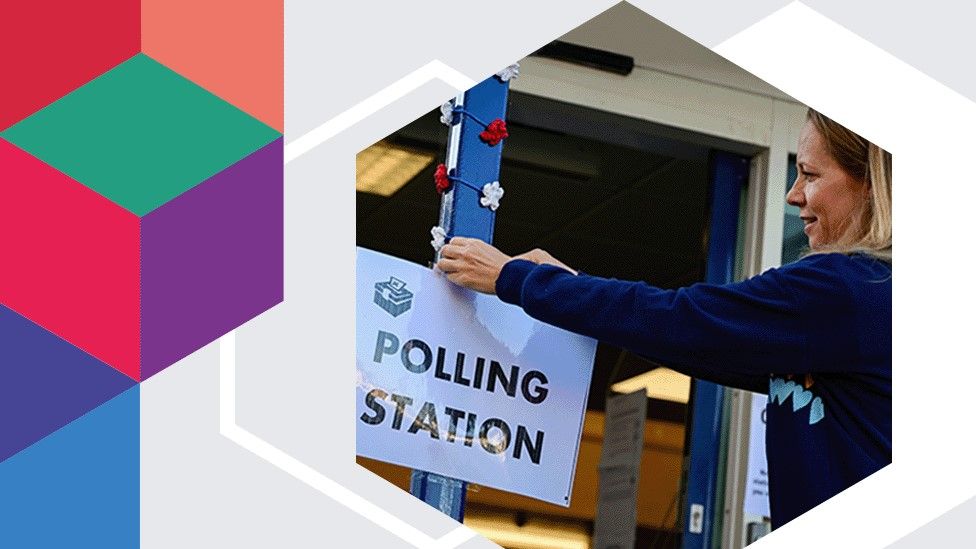[ad_1]

Voters in some parts of England and in Northern Ireland will be able to choose new councillors in May.
The elections will decide who runs local services – such as schools, libraries and bin collections – in 241 councils.
Where and when are elections taking place?
On 4 May, more than 8,000 seats will be contested at 230 councils across England.
Four mayoral elections will also be held: in Bedford, Leicester, Mansfield and Middlesbrough.
In Northern Ireland, elections for 11 councils are being held on 18 May.
How can I vote?
With council elections, voters have one vote for each available seat in an election area (known as a ward or division).
In most cases, that means one opportunity to vote – but large wards may have several seats. Whoever receives the most votes wins the seat.
Northern Ireland councils use the single transferable vote (STV) system – where voters rank candidates in order of preference.
Different voting systems are used in different councils so voters should read the instructions on their ballot paper carefully.
There are three ways to vote:
- in person at a polling station (often in places such as schools and community centres)
- by postal vote
- by nominating a proxy to vote on your behalf
You can find your local polling station here.
- aged 18 or over
- registered at an address in the area where they want to vote
- a British citizen, an Irish or EU citizen or eligible Commonwealth citizen
- not legally excluded from voting
When do I need to register to vote by?
In England, you must register to vote in person, or by proxy, by midnight on 17 April. This can be done online with a National Insurance number, or by writing to your council’s Electoral Registration Office.
In England, the deadline to request a postal vote is 17:00 BST on 18 April.
In Northern Ireland, the deadline to register to vote, by post or by proxy, is 26 April; to vote in person you must register by 28 April.
Will I need to bring ID to vote?
From 4 May 2023, voters in England will need to show photo ID in order to vote at polling stations in most elections.
There are 22 forms of valid ID including:
- passports
- driving licences
- Older or Disabled Person’s bus passes
- Oyster 60+ cards.
Voter ID has been required in Northern Ireland since 2007.
Can I bring my pet or my children?
Animals – apart from assistance dogs – are not usually allowed in polling stations. However, as dogs aren’t specifically mentioned in UK electoral law, they are admitted to polling stations at the discretion of the local authority.
Voters are encouraged to bring children to polling stations to help educate them about democracy – but they are not allowed to mark your ballot paper.
What do local councils do?
Local councils are responsible for many public services, including:
- providing care for the elderly and disabled
- fixing potholes on some roads
- collecting rubbish
Northern Ireland councils have a more limited range of responsibilities and have no powers over education, road-building or housing, but the councils still collect taxes and maintain local services.
Why do these elections matter?
These election will decide who is in charge of local public services – and how they are run.
Local matters, such as contentious planning decisions, the state of roads and how efficiently bins are collected, often decide local elections.
Rubbish collection is often an important local election topic
The last time these council seats were contested, in May 2019, the Conservatives lost more than 1,300 seats. Labour lost 82. At the time, Theresa May was in her final weeks as prime minister, soon to be replaced by Boris Johnson.
When will the results be known?
More than 60 England local election results are expected to be announced overnight on Friday 5 May, with the rest due throughout the following day.
In Northern Ireland, votes are not counted overnight and so results will start coming in on 19 May.
[ad_2]
Source link

Leave a Reply